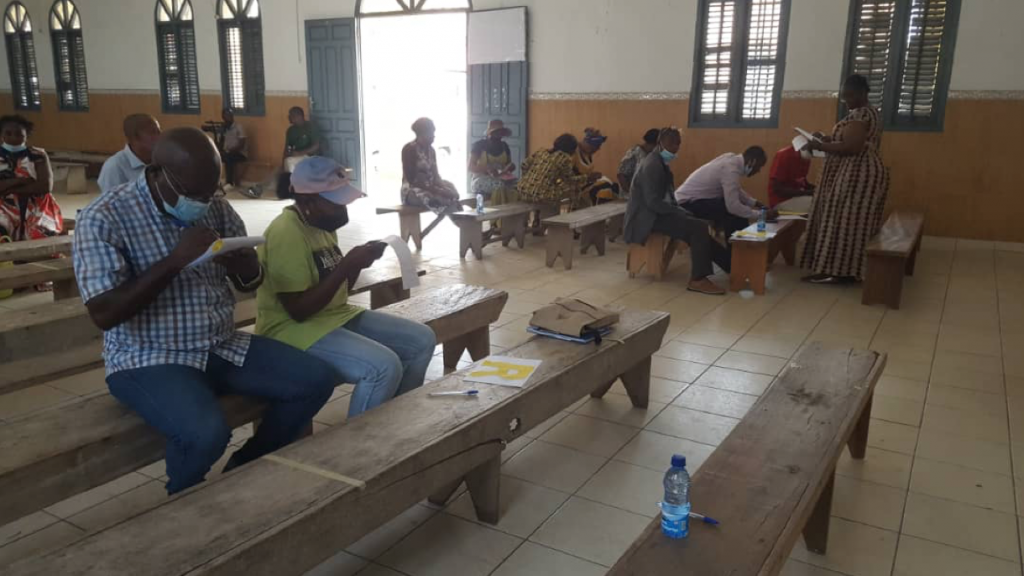APROFORT assisted several organizations in presenting a communication to UN Women’s Commission on the Status of Women showcasing some of the serious problems women face in Equatorial Guinea.
The Equatoguinean Commission of Jurists, EG Justice, Somos Parte del Mundo, the African Association for Development Education (with consultative status in ECOSOC) and the Association for the Support of African Women hope that the authorities of Equatorial Guinea will take measures to protect women, as well as measures to eliminate the various forms of discrimination they suffer.
The 8-page document presents some of the cases of discrimination suffered by women in Equatorial Guinea such as violence and discrimination in the family environment and by institutions, cases of violence and discrimination against women with disabilities and cases of violence and discrimination based on sexual orientation. It also highlights the imposition of illegal fines called “cell rights” on women detained which is a case of corruption.
Members of civil society have contributed to the preparation of the report, and focus group discussions have been organized with almost 40 community leaders, teachers, and young students. In addition, nearly 25 victims or witnesses of various types of violations have been interviewed directly.
“My mother had me arrested. I was arrested for being homosexual, me and my partner. We were in prison for two weeks until we paid 40,000 Central African francs”, reports a member of Equatorial Guinea’s LGBTQI+ community under anonymity.
“I was raped. I have a young daughter as a result of that rape. It is a devastating situation for me. I don’t want this child, because she is the child of a rape”, says a woman with disabilities.
From the focus groups with community leaders, students, and teachers: 25 of the 40 surveyed indicated that gender-based violence is one of the main problems they see in their neighborhoods, ahead of drug addiction and robberies with violence also prominent issues.
“I am a mother by force. My family forces me to take care of the child. I don’t know who the father is and I have no money to take care of the baby,” laments an LGBTQI+ woman, always under the cloak of anonymity. “I don’t know where my baby is. They stole him from me at birth,” says another.
The government had committed itself on several occasions to developing laws to sanction violence against women, but adequate laws had not been enacted. On the other hand, existing laws promoting equality between men and women, such as the constitution, have not, in practice, changed attitudes and decisions that discriminate against women.
There have been reports of serious cases of torture at the hands of security agents; also, cases of discrimination and violence against women because of their sexual orientation, such as ‘forced motherhoods’; cases of violence or sexual harassment against minors; cases of discrimination and abuse against women with disabilities; and cases of women discriminated against within the family: inheritance, early marriages; or cases of sextortion.
Equatorial Guinea has ratified the Convention on the Elimination of All Forms of Discrimination against Women (CEDAW) and its Optional Protocol. It had also endorsed several recommendations relating to the elimination of discrimination against women in the last Universal Periodic Review Exam.
On the other hand, in addition to the recommendations on the abolition of the death penalty, during the Universal Periodic Review, several CPLP countries required Equatorial Guinea to improve on aspects such as judicial independence (Brazil), improved education and the fight against early marriages (Angola) or the creation of an independent national human rights institution (Portugal).
At the national level, a few campaigns have been carried out to eradicate gender-based violence. However, cases of discrimination and, above all, violence against women continue to proliferate. The testimonies reveal a serious situation that requires urgent action by the authorities.
The communication concludes with recommendations to the government to use judicial mechanisms to prosecute and punish cases of violations of women’s human rights; develop comprehensive care programs for the victims of such violations; approve a law against gender violence and apply correctly existing provisions.
Finally, the government is required to promote the use of the optional protocol to CEDAW in the country. These recommendations should, in any case, be matched with structural measures to ensure the separation of powers and judicial independence.
Read the full report here.
